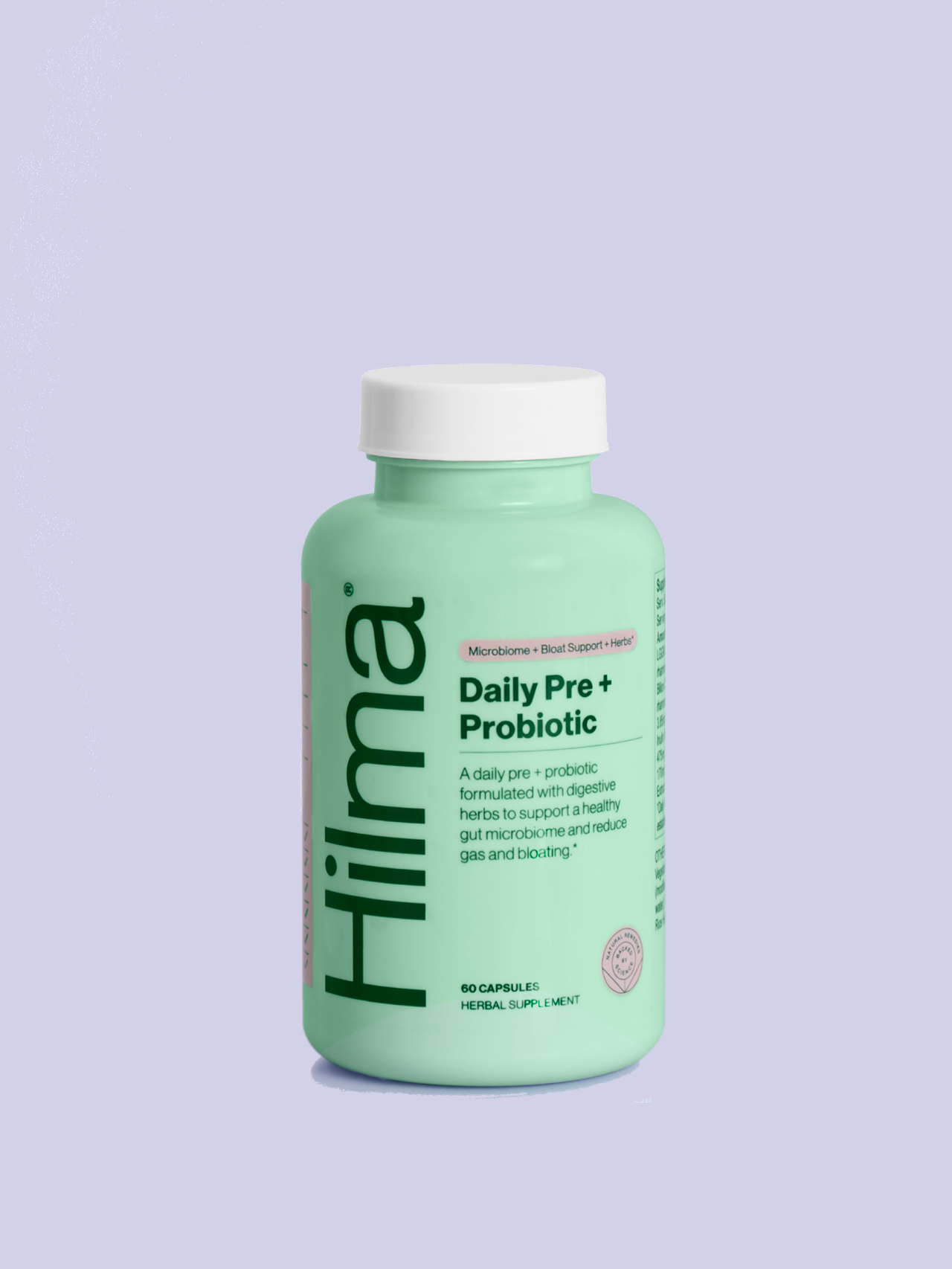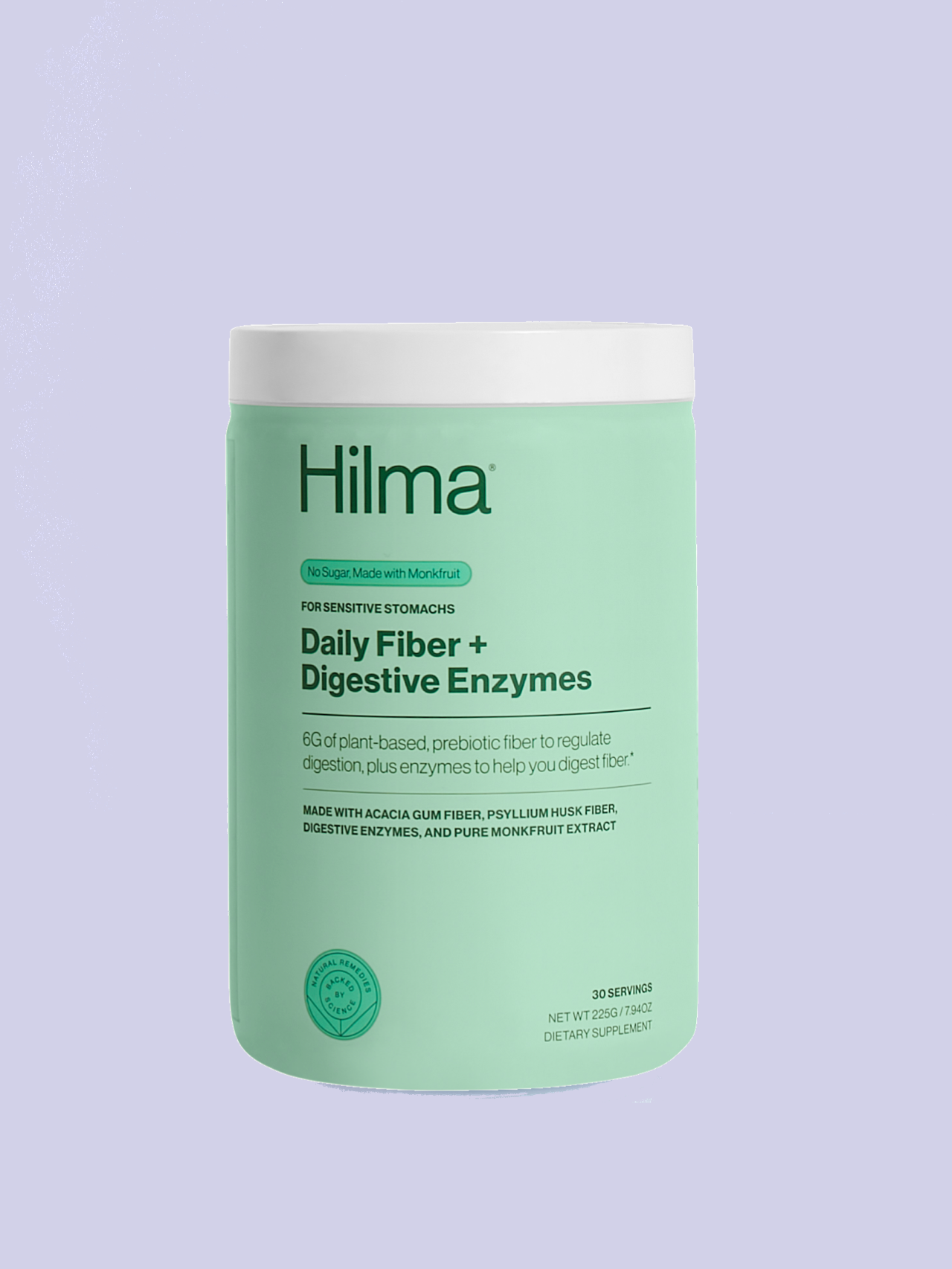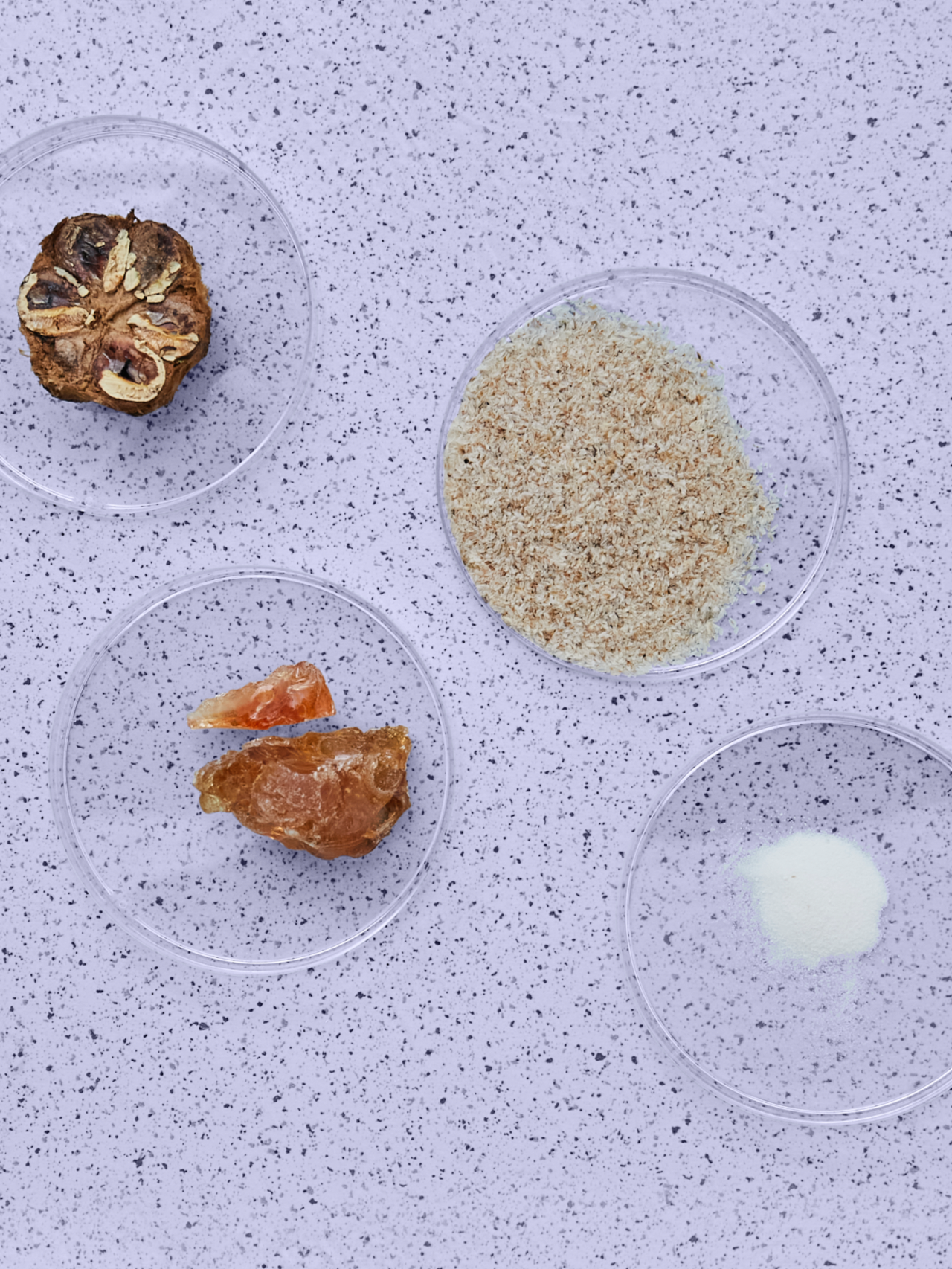
Herbs in addition to probiotics help enhance the effect of probiotics. Some directly act as food for probiotics, as prebiotics, while others support the gut environment to promote beneficial bacteria. Prebiotic herbs help the beneficial bacteria in the probiotic supplement colonize your gut since it now is given food to survive. Many herbs, such as chicory root and garlic, contain prebiotic fibers like inulin. These compounds serve as food for probiotics, encouraging the growth and colonization of beneficial bacteria in the gut.
Certain herbs, such as ginger and peppermint, may reduce inflammation or soothe the gut lining to create an environment in the gut that is conducive to the growth and activity of beneficial gut bacteria. This modulation creates a healthier environment for probiotics to work effectively, improving the overall balance of the gut microbiome. Some foods, like garlic and onion, have antimicrobial effects that target harmful bacteria while sparing or supporting beneficial microbes. This balancing effect helps prevent pathogenic bacterial overgrowth. And lastly, herbs like ajwain and rosemary stimulate the production of digestive enzymes, aiding nutrient absorption and creating favorable conditions for probiotics. Herbs encompass a wide range of compounds with various gut benefits.
Ginger
How does it help?
This antispasmodic herb helps relax the GI tract to relieve bloating and gas. It reduces inflammation in the gut lining, which can indirectly support the growth of good bacteria.
Its compounds (like gingerol) may help reduce harmful bacteria, balancing the gut microbiome.
How to consume?
Steep sliced ginger in water or a bag of ginger tea. Raw ginger can be grated into soups, curies, stir-fries, and even smoothies. Does ginger honey glazed salmon or ginger carrot soup sound tasty?
Dandelion Root
How does it help?
Dandelion root contains inulin, a type of fiber that promotes the growth of beneficial gut bacteria like bifidobacteria and lactobacilli. Up to 10% of its dry weight is actually inulin. Dandelion root also acts as a gentle diuretic, promoting detoxification.
How to consume?
Make tea, add powdered root to smoothies, or roast as a coffee substitute.
Chicory Root
How does it help?
This prebiotic helps feed both the good bacteria already present as well as the probiotic, helping ensure the probiotic’s efficacy. One of the richest sources of inulin, it helps improve digestion and supports a healthy microbiome. 15-20% of chicory root’s weight is actually inulin. Some use roasted chicory powder as a coffee alternative or add it to baked goods for a nutty flavor.
How to consume?
Use roasted chicory powder as a coffee alternative or add it to baked goods for a nutty flavor.
Garlic
How does it help?
High in inulin and fructooligosaccharides (FOS), garlic boosts the activity of probiotics and reduces harmful gut bacteria. Its antimicrobial properties help balance gut flora.
How to consume?
Use raw in salad dressings or roasted in dishes for milder flavors. Some meal ideas include garlic aioli and garlic herb mashed potatoes.
Onion
How does it help?
Another excellent source of inulin and FOS, onions help regulate gut health and maintain beneficial bacteria levels. Onion additionally contains antioxidants, like quercetin, which combat inflammation.
How to consume?
Add raw to salads, caramelize for soups, or include in stir-fries.
Ajwain
How does it help?
Ajwain enhances the secretion of digestive enzymes, improving digestion and nutrient absorption. Like ginger, ajwain also combats harmful bacteria while maintaining gut flora balance. Similar to ginger, ajwain helps protect and relax the GI lining to reduce disruptive gut indigestion.
How to consume?
Roast and incorporate into Indian and Pakistani dishes. Or boil along with ginger slices for a potent digestive tonic.
Asparagus
How does it help?
Though not an herb in the strict sense, asparagus contains inulin and acts as a gut-friendly food. Similar to chicory root, the vegetable can support detoxification due to its diuretic properties.
How to consume?
How to incorporate? Roast, steam, or grill as a side dish or toss into salads. Does asparagus risotto or lemon garlic roasted asparagus sound delicious?
Jerusalem Artichoke
How does it help?
Known as a "sunchoke," Jerusalem artichoke is packed with inulin and supports a healthy gut microbiome. Jerusalem artichoke can help regulate blood sugar levels due to its slow digestion.
How to consume?
Roast or mash like potatoes, or add raw slices to salads. Additional recipe ideas include Jerusalem artichoke gratin or a Jerusalem artichoke and leek tart.
Burdock Root
How does it help?
Frequently used in herbal medicine, burdock root is rich in inulin and also offers antioxidant benefits. Burdock root is even connected to skin health from its antiinflammatory behavior.
How to consume?
Brew into tea, add to soups, or stir-fry with vegetables.
Leeks
How does it help?
In the same family as onions and garlic are leeks. Leeks are high in prebiotic fibers, particularly inulin, as well as vitamins A, C, and K
How to consume?
Use in soups, sautés, or as a base for broths and casseroles. Ideas include a potato and leek soup, leek and mushroom risotto, or carmelized leek pasta.
Fenugreek
How does it help?
Fenugreek contains galactomannan, a type of soluble fiber with prebiotic properties.
How to consume?
Add ground seeds to curries, teas, or baked goods.
Slippery Elm
How does it help?
Slippery elm is rich in mucilage, which acts as a prebiotic and provides a soothing effect on the gut lining. Slippery elm protects a protective coating for the stomach and intestines.
How to consume?
Make a tea, mix powdered slippery elm into water, or use it in herbal syrups.
This information is for educational purposes only and should not be taken as medical advice. Please consult a physician before treating any disorder.
Peppermint
How does it help?
Peppermint is well-known for its soothing effect on digestive discomfort. Its menthol content can help relax the muscles in the gastrointestinal tract, reducing spasms and promoting better digestion. Additionally, peppermint has antimicrobial properties that may assist in maintaining a balanced gut microbiome.
How to consume?
Steep peppermint leaves in hot water for a refreshing tea, or incorporate fresh leaves into salads and desserts for a cool, minty flavor.
Chamomile
How does it help?
Chamomile is another herb prized for its calming effects on digestion. It can help reduce inflammation in the gut and soothe an upset stomach. Chamomile also promotes relaxation, which may indirectly benefit digestion by reducing stress-related gut issues.
How to consume?
Enjoy as a tea by steeping dried chamomile flowers, or use chamomile-infused oils in culinary applications.
Fennel
How does it help?
Fennel seeds are packed with compounds that support digestion and relieve bloating. They also have antimicrobial and anti-inflammatory properties, making them a versatile addition to gut health protocols. Fennel helps stimulate the production of digestive enzymes, enhancing nutrient absorption.
How to consume?
Chew raw fennel seeds after meals, brew into tea, or add to soups and baked dishes for a subtle licorice-like flavor. How does fennel and orange salad or fennel and sausage pasta sound?
Turmeric
How does it help?
Turmeric contains curcumin, a potent anti-inflammatory compound that can support gut health. It helps protect the gut lining, reduce inflammation, and promote a healthy balance of gut bacteria. Turmeric's antioxidant properties further contribute to overall digestive well-being.
How to consume?
Add powdered turmeric to curries, soups, or golden milk, or take as a supplement with black pepper to enhance absorption. Turmeric is great all year round whether it’s in a golden milk latte or a turmeric mango smoothie.
Licorice Root
How does it help?
Licorice root is known for its soothing effects on the gut lining. It can help reduce inflammation, support mucosal integrity, and balance the gut microbiome. Deglycyrrhizinated licorice (DGL) is often used for its digestive benefits.
How to consume?
Brew licorice root tea, or take DGL supplements as directed.
Cinnamon
How does it help?
Cinnamon is a warming spice with antimicrobial properties. It can help balance gut bacteria and reduce inflammation. Cinnamon also supports healthy blood sugar levels, which can indirectly benefit gut health.
How to consume?
Sprinkle ground cinnamon on oatmeal, yogurt, or baked goods, or add a cinnamon stick to teas and stews. Many even add a dash to their morning cup of coffee.
Oregano
How does it help?
Oregano is rich in antioxidants and antimicrobial compounds. It can help reduce harmful bacteria in the gut while supporting beneficial microbes. Oregano oil is particularly potent for gut health.
How to consume?
Use fresh or dried oregano in cooking. Tasty recipe ideas include oregano lemon roasted chicken or an oregano bean and vegetable soup.
Cumin
How does it help?
Cumin is another great herb for gut health. It can stimulate digestive enzymes, which helps improve overall digestion.
How to consume?
You can use cumin seeds in cooking and spice blends. Cumin beef or lamb koftas sound delicious right now.
This information is for educational purposes only and should not be taken as medical advice. Please consult a physician before treating any disorder.



